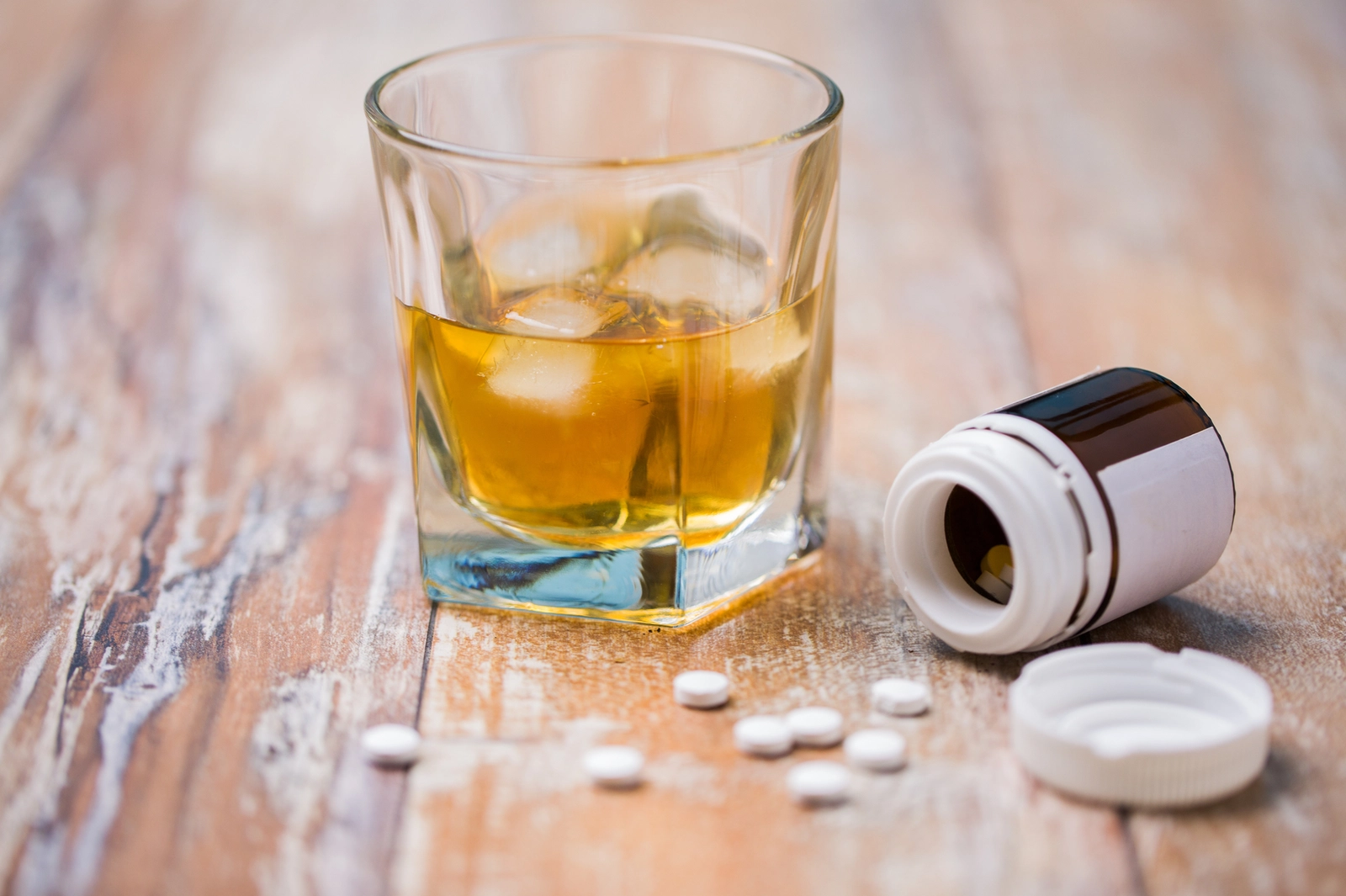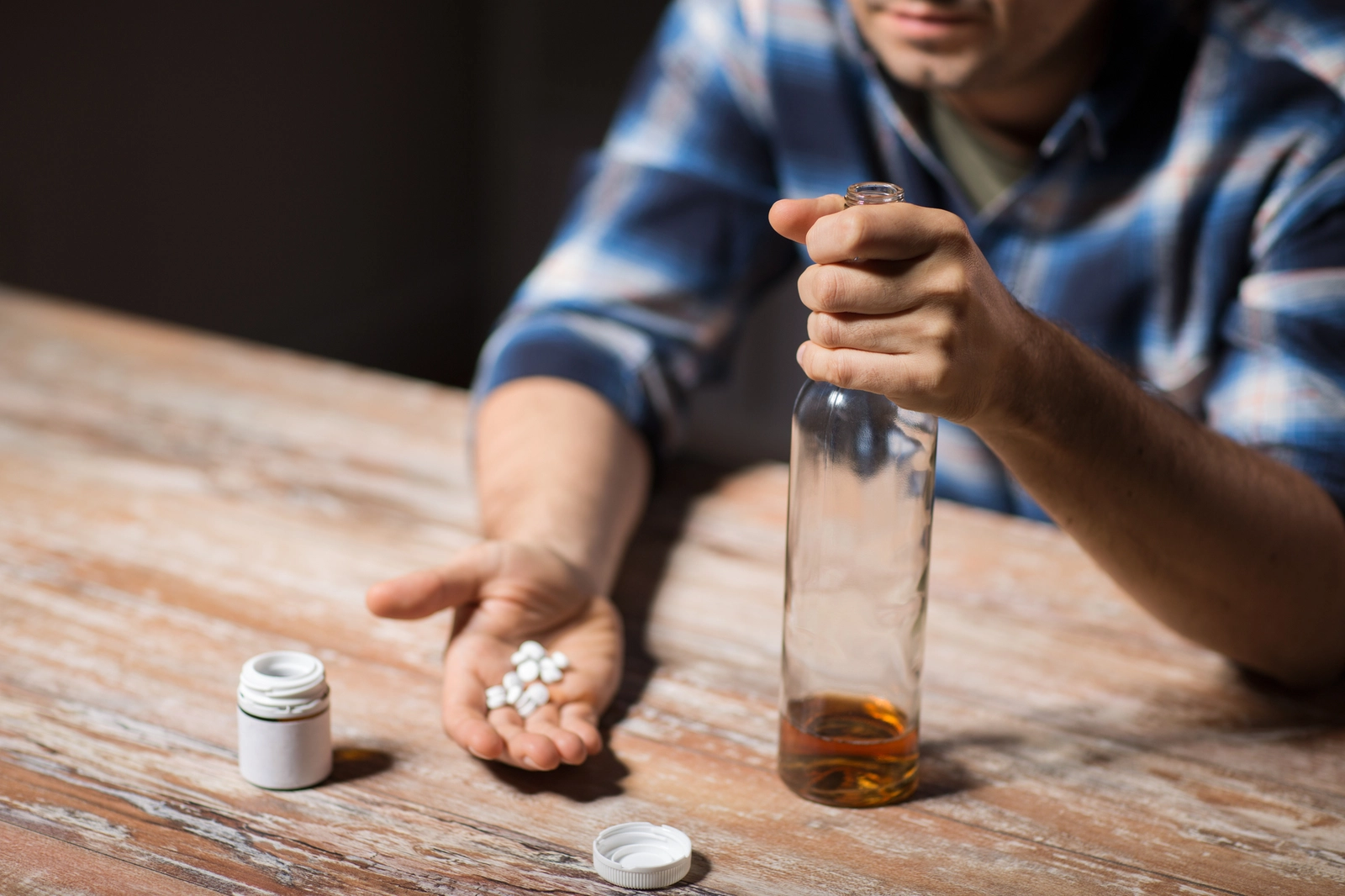What Is Zoloft?
Zoloft, which is the brand name for sertraline, is a prescription antidepressant in the selective serotonin reuptake inhibitor (SSRI) class of drugs. Like other SSRIs, Zoloft changes how the brain cells reabsorb the neurotransmitter serotonin.[1]
Can I Take Zoloft with Alcohol?
Studies on alcohol and Zoloft are limited, but that doesn’t mean an interaction doesn’t exist. The Food and Drug Administration (FDA) recommends avoiding alcohol with antidepressants like Zoloft because they both affect the brain.[2]
Zoloft works on neurotransmitters and affects the brain’s messaging system, while alcohol is a depressant that inhibits neurotransmitter exchanges. This is why you may have trouble concentrating or staying coordinated when you drink too much alcohol.
These effects occur when you drink alcohol on its own, but if you combine alcohol with Zoloft, it can complicate the effects. You may experience effects like nausea, diarrhea, dry mouth, drowsiness, dizziness, and sexual side effects.
More serious effects can occur with alcohol and Zoloft, however. One of the biggest risks is suicidal thoughts and actions, particularly in people under 25 years old.[3] The risk of this side effect is highest shortly after starting or adjusting your dose of Zoloft. Because alcohol can impair your judgment, your risk of suicidal actions may be increased.
In addition, SSRIs like Zoloft block the uptake of serotonin, increasing the amount in the brain. This increases the risk of serotonin syndrome, which is a potentially life-threatening condition that can cause a rapid heart rate, coma, and hallucinations.[4] Alcohol temporarily boosts serotonin in the brain, so combining the two can cause extremely high serotonin levels.
Effects of Alcohol on Depression
Drinking alcohol isn’t recommended if you suffer from depression. Alcohol may make you feel good temporarily, but it alters the signals that allow you to think and reason. It can make your depression worse.
Heavy alcohol use can cause worsening depression, including symptoms like weight gain or loss, loss of appetite, restlessness, insomnia, irritability, fatigue, feelings of worthlessness, and anxiety.[5]
Even if you take Zoloft for a condition other than depression, such as obsessive-compulsive disorder (OCD) or post-traumatic stress disorder (PTSD), combining it with alcohol could lead to increased depression and other unpleasant side effects.
Can I Have One Drink While Taking Zoloft?
There’s not much research into the effects of having one or two drinks while taking Zoloft or other SSRIs. The FDA and the prescribing information recommend avoiding alcohol altogether.
If you want to have a few drinks while taking Zoloft, it’s important to talk to your doctor about whether it’s safe. In addition to the potential drug interactions, you may have unique health factors that can make this combination dangerous for you.
When Can I Drink Alcohol After Stopping Zoloft?
It’s important to take Zoloft as prescribed, which means taking all your prescribed doses at the appropriate times. You shouldn’t skip a dose of Zoloft to drink alcohol. This can cause withdrawal symptoms like muscle aches, tiredness, dizziness, headache, anxiety, restlessness, balance issues, electric shock sensations, pins and needles, irritability, nausea, and vomiting.[6]
Zoloft also builds up in your system, so it may take time for you to feel the optimal effects. Once you’ve been on the drug for a while, it can take several days for your body to eliminate it. Skipping a dose or a few days of Zoloft won’t make drinking alcohol safer since there’s still some of the drug in your system. For the average adult, Zoloft takes about 5 or 6 days to clear, but it can take longer if you’re older or have liver function problems.[7]
If you want to stop taking Zoloft, talk to your doctor about how to do so safely. A tapering schedule, which slowly weans you off the drug, can prevent serious withdrawal effects.
Is Any Antidepressant Safe with Alcohol?

No, antidepressants have unique risks when combined with alcohol. Serotonin and norepinephrine reuptake inhibitors (SNRIs) like duloxetine can cause liver damage when combined with alcohol. Tricyclic antidepressants (TCAs) like amitriptyline can cause blackouts when taken with alcohol. Monoamine oxidase inhibitors (MAOIs) like rasagiline can raise your blood pressure to dangerous levels.[8]
Never combine alcohol and antidepressants without talking to your doctor.
Alcohol Withdrawal
If you struggle with alcohol abuse or addiction, it can be dangerous to stop drinking suddenly and take Zoloft or other antidepressants. This is characterized by a compulsive need to use alcohol, no matter the negative effects on your health, interpersonal relationships, and life.
Depending on how often and how much you drink, you may experience alcohol withdrawal with symptoms like:[9]
- Anxiety
- Shaky hands
- Headache
- Nausea
- Vomiting
- Insomnia
- Sweating
- Hallucinations
- Seizures
- Delirium tremens
Some of these symptoms can be life-threatening, so you can’t walk through them.
Treatment for Alcohol Addiction and Depression
Two mental health conditions that occur simultaneously are co-occurring disorders. Some conditions co-occur commonly, including alcohol addiction and depression. If you’re struggling with co-occurring alcohol addiction and depression, it’s important to get integrated treatment that addresses both of these conditions and how they affect one another.
Often, the first step is medical detox for alcohol withdrawal. This setting provides medical support to prevent complications from dangerous withdrawal symptoms like seizures, manage withdrawal symptoms, and administer medications to make you more comfortable.
Once detox is complete, you should enter a comprehensive addiction treatment program. Depending on your needs, you may be in an inpatient or outpatient environment with behavioral therapies, individual therapy, and group counseling to address the emotional, social, and psychological aspects of addiction and depression and learn healthier patterns and coping skills.
Don’t Mix Alcohol and Zoloft
Mixing alcohol with antidepressants like Zoloft can have dangerous side effects. Even an occasional drink can cause problems, so it’s best to talk to your doctor before drinking alcohol while taking Zoloft.
